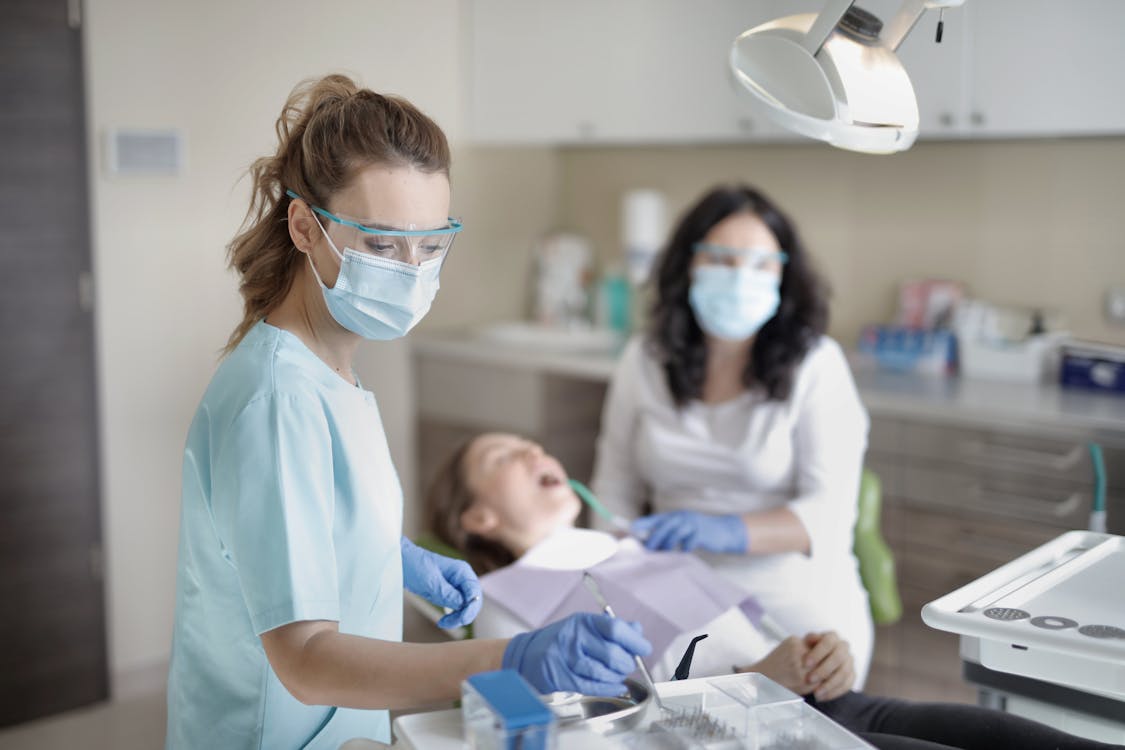Good oral hygiene helps prevent several dental problems such as tooth decay, gum disease, and even tooth erosion. While brushing your teeth in the morning and evening is a great start, it takes a little more effort to be genuinely useful. Here are some simple oral hygiene tips to keep your pearl white color in top condition.
Advice on oral hygiene from dentists "Denta Plus."

Correct cleaning technique
As we all know, brushing your teeth at least twice a day is essential - after breakfast in the morning and before bed. Spend at least 2 minutes brushing, ensuring all areas are cleaned - the inside, outside, and bite of each tooth. The key is to aim the toothbrush's bristles directly at the gum line and not at the apex of the tooth, as this is where plaque begins to form. Gently move your toothbrush in a circular motion to remove as much plaque as possible from your gums.
Which is better, a
manual or electric toothbrush?
When it comes to choosing between a manual or an electric toothbrush, it's a personal choice - they're equally effective at removing plaque and debris when used correctly. Both instruments should be in perfect condition. The bristles wear out over time, so remember to replace your toothbrush or brush head every three months.
When choosing a manual toothbrush, make sure it has a small head for better access to your back teeth. Plus, soft bristles are better for the gums.
A rechargeable electric toothbrush is suitable for all ages and is the best choice for young children. While children are attracted to bright colors, the dynamic movement of the toothbrush does the job efficiently.
It is also essential to choose the right toothpaste, preferably with fluoride. Fluoride helps to strengthen tooth enamel, reducing the risk of tooth decay. Select the low-fluoride version for children under six, using only a tiny swab (the size of a grain of rice) when under 3, increasing the pea-sized amount from 3 to 6.
Cleaning between
teeth
Removal of plaque between teeth should be done at least once a day after brushing your teeth. Use a piece of dental floss between your teeth using a slow, gentle sawing motion.
Nowadays, dental tape - a wide flat nylon tape thinner than standard floss - has become a popular option, especially for beginners. It is a more natural way to penetrate between teeth.
If you are not entirely sure how to brush your teeth properly or need help choosing the best option, talk to your dentist or hygienist.
Eat the right diet
Try to reduce or eliminate the number of sugary foods and sodas you eat and drink. They turn into acid in the mouth and dissolve minerals in tooth enamel, causing cavities and ultimately holes (cavities). Acidic foods and drinks can also cause tooth erosion, which causes tooth sensitivity, discoloration, and cracking.
To limit acid contact with your teeth, eat a healthy, balanced diet. For example, you can have crispy whole grain cereals for breakfast with added low-fat, sugar-free yogurt with fresh fruit. Limit acidic drinks throughout the day, such as soft drinks and sports drinks, liqueurs, wine, and even fruit juices; it's better to consume whole fruits than juice. You get more fiber and less sugar - fruit juice can contain up to 10 teaspoons of sugar! The best drinks are less acidic and include still water, milk, or tea (no sugar or honey, of course).
Another way to help your body fight bacteria in your mouth is by introducing foods that promote saliva production. This includes acidic foods such as limes, lemons, cherries, and cranberries.
Additional tips for
maintaining dental health
After every meal, rinse your mouth with an antiseptic mouthwash to kill germs or at least water to rinse off food debris. Another good tip is to cleanse your tongue; this removes plaque full of bacteria and can cause bad breath. While chemists have special plastic tongue scrapers, a toothbrush can be used just as effectively.
Resist the temptation to crack open nuts, open plastic wrap, or remove a bottle cap with your teeth - there is a risk of broken or broken teeth. Use your teeth only for chewing food.
Visit your dentist regularly for checkups, as often as your dentist advises, and whenever you find any problems such as a toothache or bleeding gums.

Comments
Post a Comment